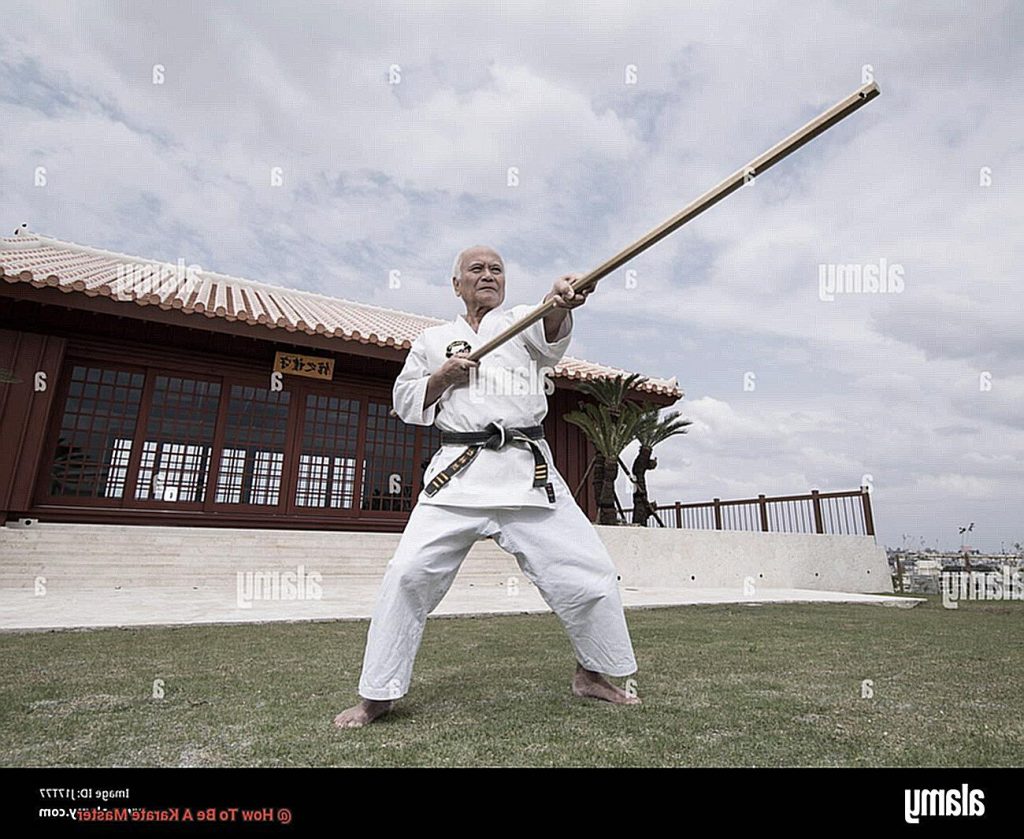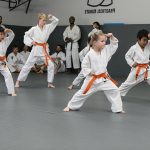Do you have a passion for martial arts and dream of becoming a karate master?
Karate is an ancient Japanese martial art that combines self-defense, physical fitness, and mental discipline. But mastering karate goes beyond just learning how to punch, kick, and block – it requires a deep understanding of the principles and philosophies of the art.

So, what does it take to become a karate master? The journey demands unwavering dedication, discipline, and hard work.
It all starts with finding an experienced karate instructor who can guide you through your training and help you develop your skills. From there, you must commit to practicing regularly while pushing yourself to improve.
However, being a karate master isn’t just about physical training – it also involves mental discipline, focus, and inner strength. You must learn how to control your breathing, maintain focus even in high-pressure situations, and cultivate mindfulness.
In this blog post, we’ll explore the essential steps required to become a true karate master. We’ll delve into the physical and mental training needed for success while examining the principles of the art that underpin its practice.
Whether you’re starting out as a beginner or seeking to enhance your existing skills as an experienced martial artist looking for new challenges – this guide has got you covered.
Let’s dive in now.
Understanding the Fundamental Principles of Karate
Karate is not just a physical activity. It is a mental discipline that requires focus, dedication, and patience.
To become a Karate master, you must understand the fundamental principles of this martial art. These principles include respect, discipline, perseverance, focus, and humility.
Respect is a crucial principle in Karate – one that cannot be overstated. As a Karate practitioner, you must demonstrate respect to your instructors, fellow students, and the art itself.
Bowing to each other before and after training sessions is a way of showing respect in Karate. This practice also helps to develop humility and gratitude towards others.
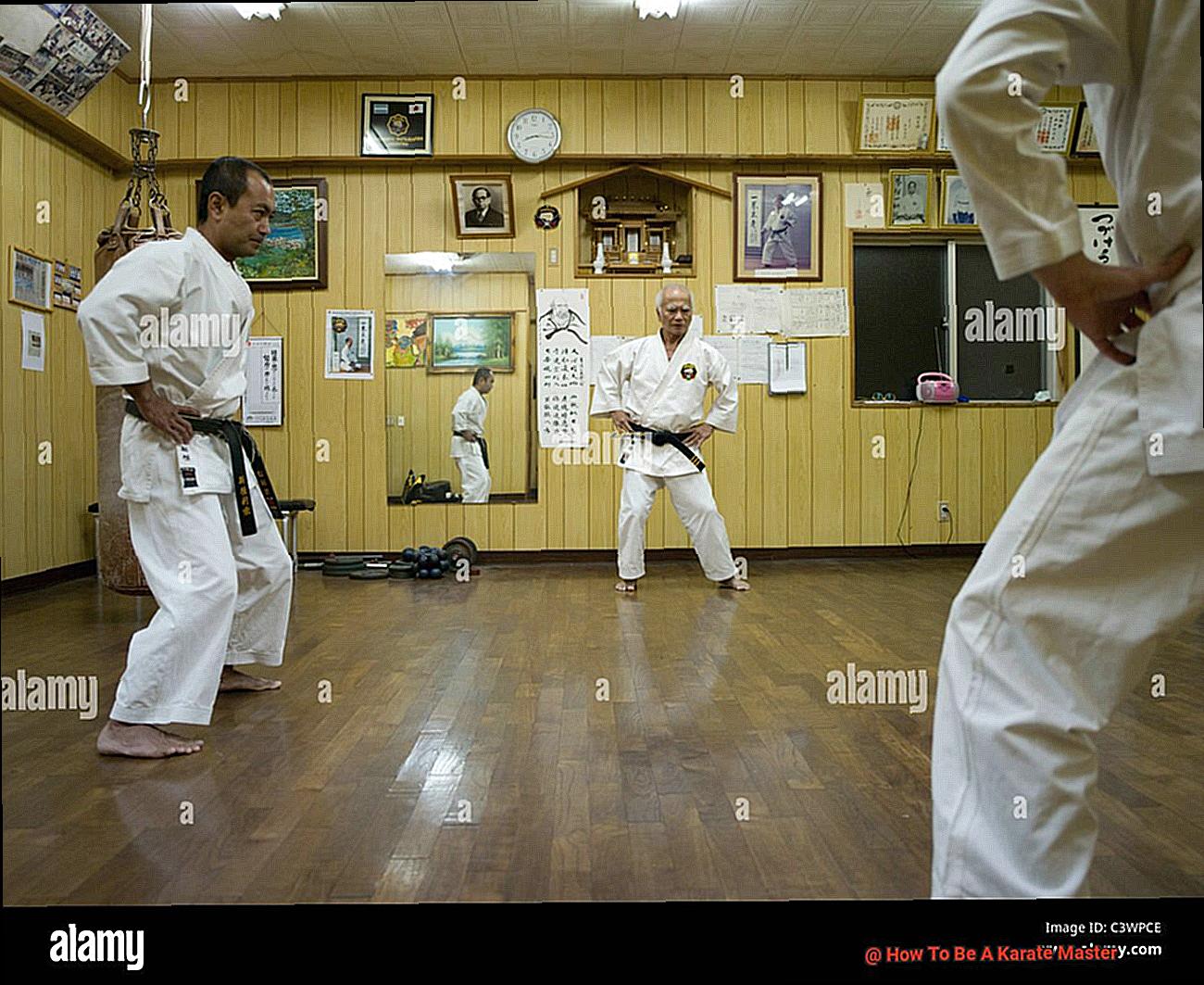
Discipline is another essential principle of Karate. It involves adhering to rules and regulations and practicing self-control.
Practicing Karate requires discipline in training, diet, and lifestyle. Consistent practice and adherence to discipline will lead to mastery of the art.
Perseverance is also critical in Karate. It involves pushing through tough times and overcoming obstacles in training.
Consistent practice is necessary for improvement, and one must persevere through setbacks and failures to achieve mastery. Focus is another essential principle in Karate.
One must concentrate on their techniques, movements, and breathing during training. Focus helps develop mental clarity and improves physical performance.
Finally, humility is vital in Karate. It involves recognizing that there is always more to learn and being open to feedback and constructive criticism from instructors or fellow students.
Humility also helps keep the ego in check and fosters a sense of community within the dojo. Becoming a Karate master requires adopting these principles both inside and outside of the dojo.
Regular practice under the guidance of a qualified instructor will help you develop your skills and push you to achieve your full potential. You must also maintain a healthy diet and lifestyle while getting enough rest for optimal training.
So, understanding the fundamental principles of Karate is essential for anyone seeking to become a Karate master. By practicing these principles both inside and outside of the dojo, you can develop the skills needed to become a true Karate master.
Finding a Qualified Instructor or Mentor
First, start by looking for a reputable karate school or dojo in your area. You can do this by asking friends and family members who practice karate or by searching online.
Once you have a list of potential schools, it’s time to get hands-on and observe a class. When observing a class, keep a close eye on the instructor’s teaching style.
A great instructor should be patient, knowledgeable, and able to communicate effectively with students of all levels. They should also be able to demonstrate techniques clearly and provide individual feedback to students.
But it’s not just about the teaching style – it’s also about experience and qualifications. Look for an instructor who has trained under a well-respected master and has achieved a high rank in the martial art.
This way, you’ll be sure that you’re learning from someone with a deep understanding of the art who can guide you towards mastery. In addition to finding a qualified instructor, it’s also beneficial to find a mentor who can provide additional guidance and support.
A mentor is someone who has achieved mastery in karate and can offer advice on how to improve your technique and overcome any challenges you may face. This could be someone from your school or another experienced practitioner that you admire.
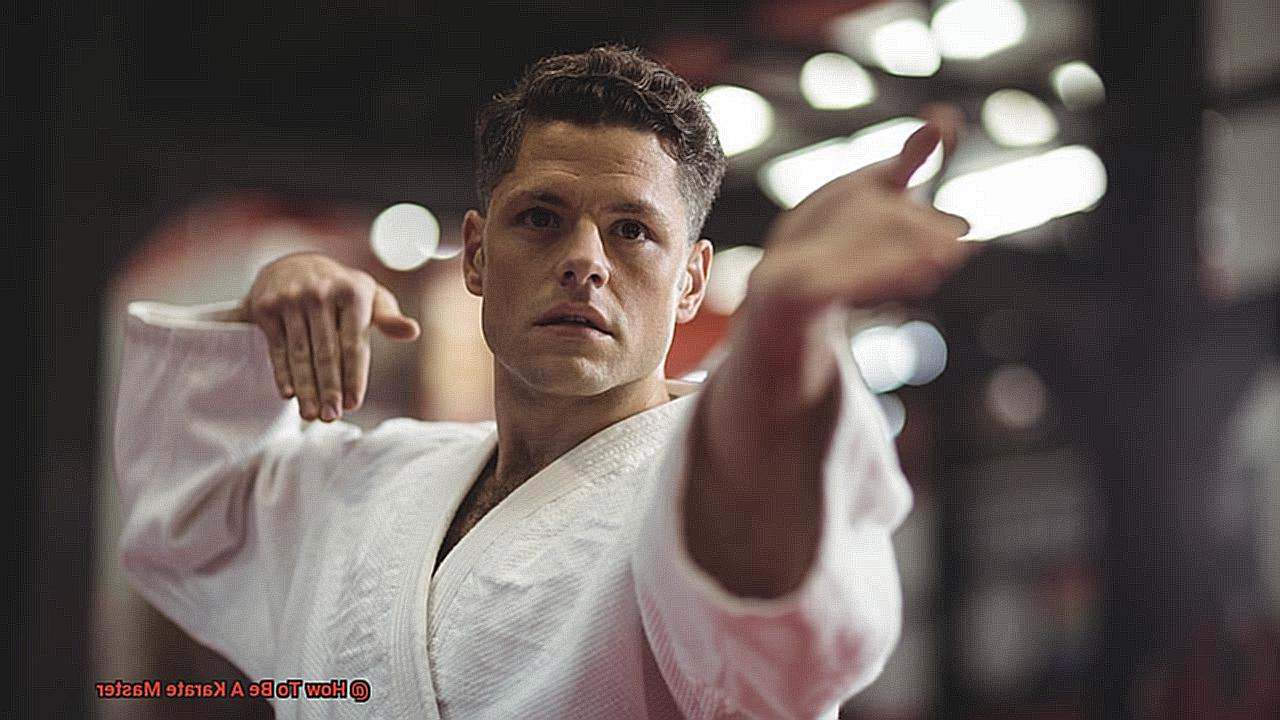
Remember, finding a qualified instructor or mentor is essential for anyone looking to become a karate master.
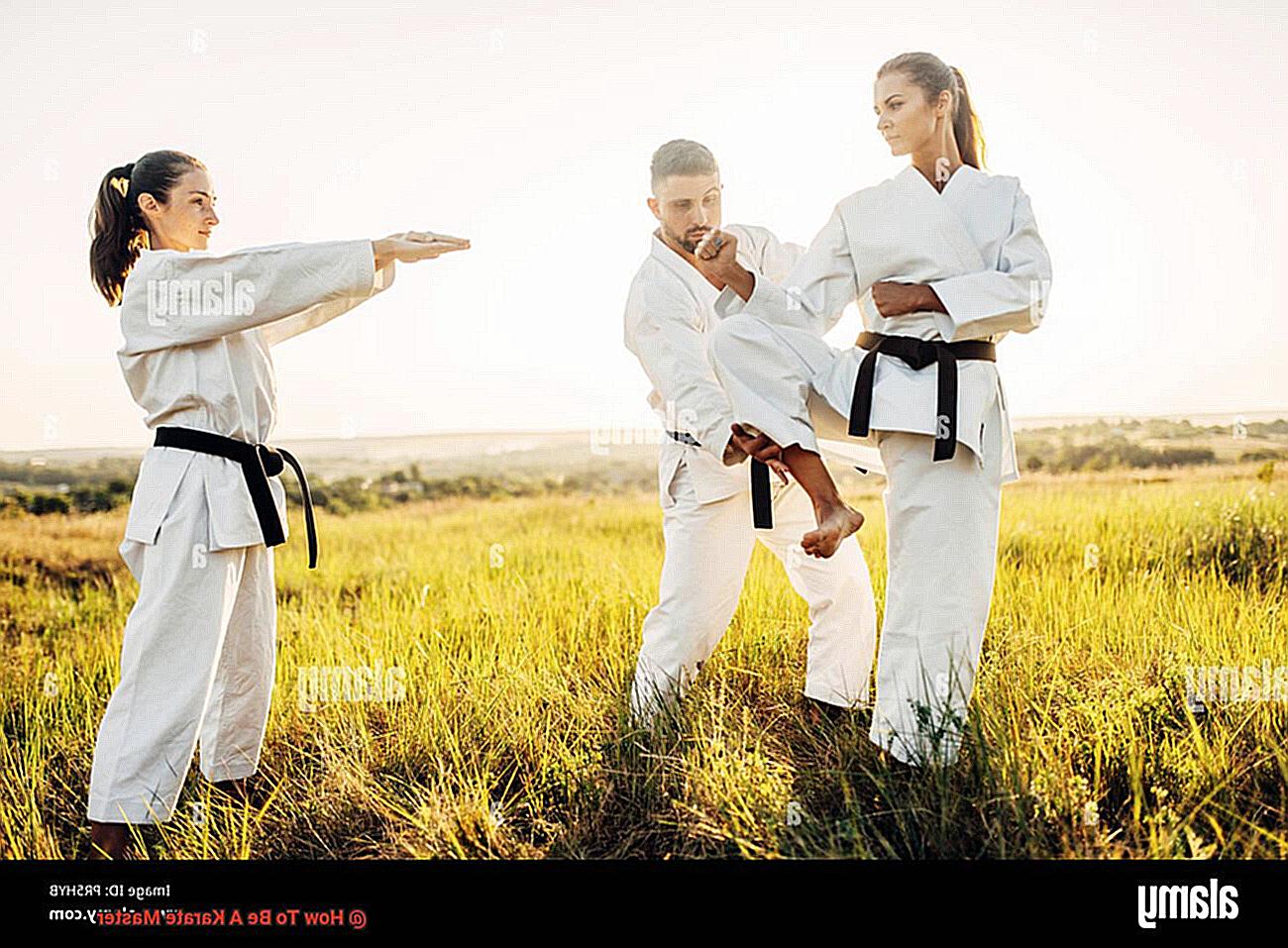
With the right guidance and support, you can achieve your goals and reach new heights in this ancient martial art.
Practicing Consistently
It takes dedication, hard work, and discipline to become a true karate master, and practicing regularly helps you build the strength, technique, and stamina needed to achieve your goals.
To make sure you’re practicing consistently, it’s important to develop a routine.
Set aside a specific time each day for practice and stick to it.
This will help you build a habit and make it easier for you to commit to regular practice. Don’t forget to set achievable goals and track your progress along the way.
Seeing your progress will help keep you motivated and give you a sense of accomplishment. Varying your types of practice is also important.
Karate requires a combination of katas, sparring, and drills to improve different aspects of your technique.
Practicing with a partner or in a group can provide new challenges and opportunities for improvement.
As you continue practicing, it’s essential that you listen to your body. Finding the right balance between pushing yourself and avoiding injury is crucial.
Overexertion can lead to injuries that set you back, while not pushing yourself enough won’t help you reach your full potential. Remember that becoming a karate master takes time and effort.
Practicing consistently will help you build the necessary qualities for success in karate, including dedication, discipline, and hard work.
Maintaining a Healthy Diet and Lifestyle
As you pursue your karate mastery, you know that discipline and hard work are crucial.
But there’s another key element that you can’t overlook – maintaining a healthy diet and lifestyle. Proper nutrition and lifestyle habits are essential for fueling your body and providing the energy needed for intense training sessions.
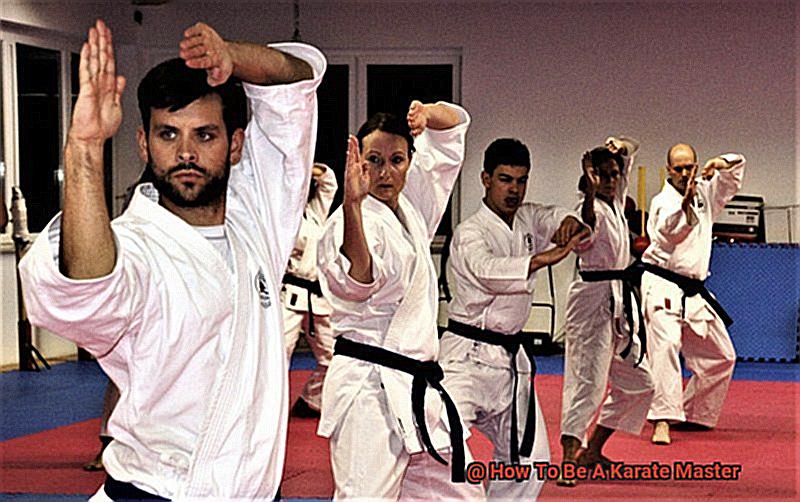
You can think of your body as a well-oiled machine that needs the right fuel to perform at its peak. A balanced diet consisting of lean protein, complex carbohydrates, and healthy fats is ideal for athletes pursuing martial arts.
Lean sources of protein like chicken, fish, turkey, or plant-based proteins such as beans and lentils are great options. Complex carbohydrates from whole grains, fruits, and vegetables provide the necessary energy during training sessions.
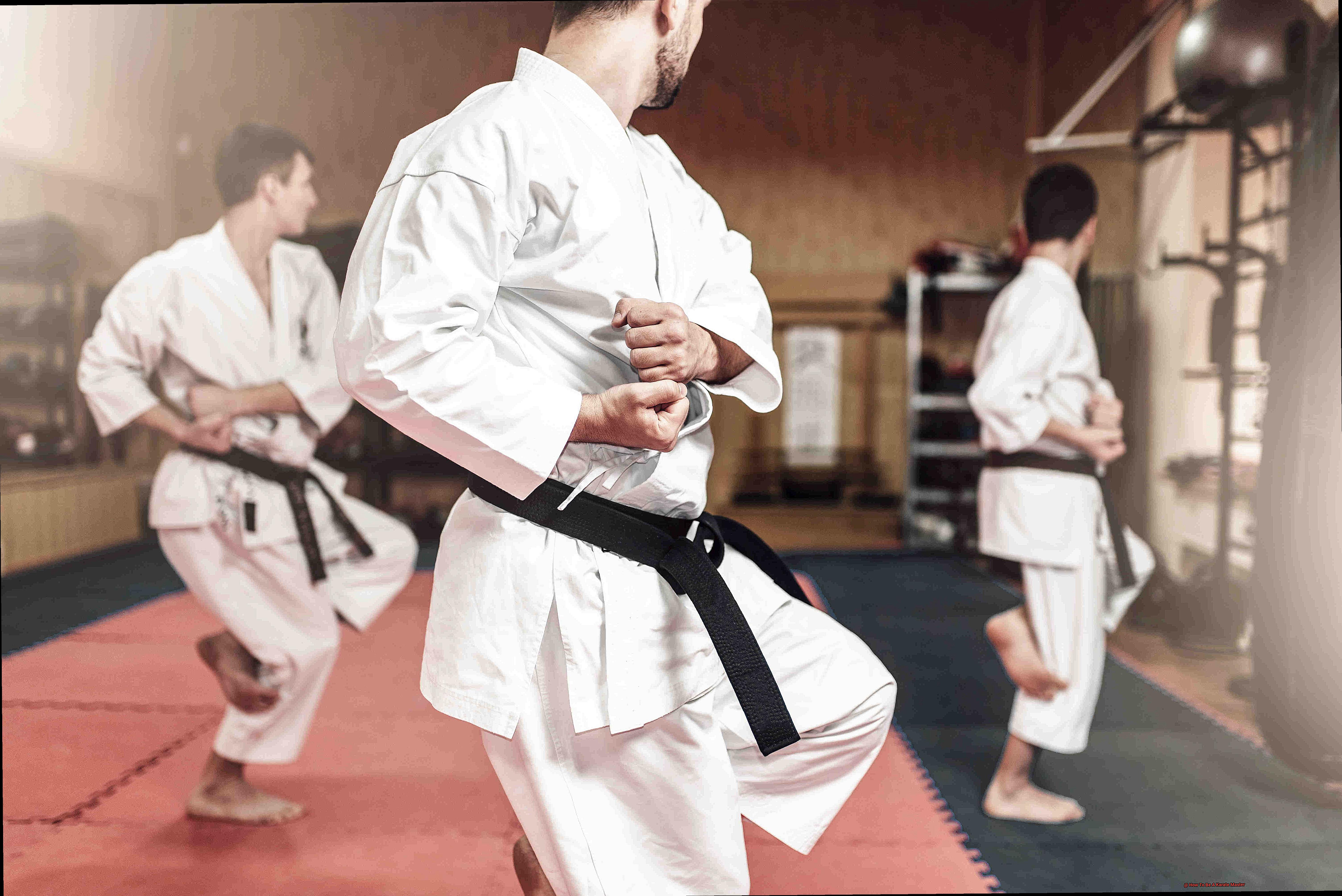
Healthy fats from avocado, nuts, and olive oil support overall health. But a healthy diet is only one part of the equation.
Maintaining a healthy lifestyle through regular exercise and adequate rest is equally important for karate practitioners. Regular exercise builds endurance, strength, and flexibility required for martial arts training.
Aim to engage in physical activity for at least 30 minutes a day, five days a week. Equally important is getting sufficient rest, allowing your body to recover and repair itself after intense training sessions.
Experts recommend getting at least 7-8 hours of sleep every night to ensure optimal recovery.
By maintaining a healthy diet and lifestyle, you’ll not only feel better but also perform better in your karate practice.
Adopting the Right Mindset
Becoming a Karate master is not just about physical strength and technique, but also about having the right mindset.
The right mindset enables a Karate practitioner to stay calm under pressure, overcome obstacles, and achieve their goals. It requires cultivating qualities such as a positive attitude, humility, perseverance, and mental toughness.
A positive attitude helps a Karate practitioner to stay motivated and focused on their goals. It means viewing challenges as opportunities for growth and improvement rather than obstacles.
A positive attitude allows them to deal with setbacks or failures constructively, without losing sight of their ultimate goal. Humility is another important aspect of the right mindset.
A Karate master must be humble enough to recognize that there is always more to learn and improve upon. They should not become complacent or arrogant about their skills, as this can lead to a lack of progress and growth.
Humility opens the door to continuous learning and improvement. Perseverance is essential in developing the right mindset.
Learning Karate takes time, dedication, and hard work. A Karate practitioner must be willing to put in the effort and persevere through challenges and setbacks.
Even when progress seems slow or non-existent, they must keep pushing forward. Perseverance helps them stay committed to their goals.
Finally, mental toughness is a critical component of adopting the right mindset. Mental toughness means being able to push through physical and mental barriers such as pain, fatigue, fear, and self-doubt.
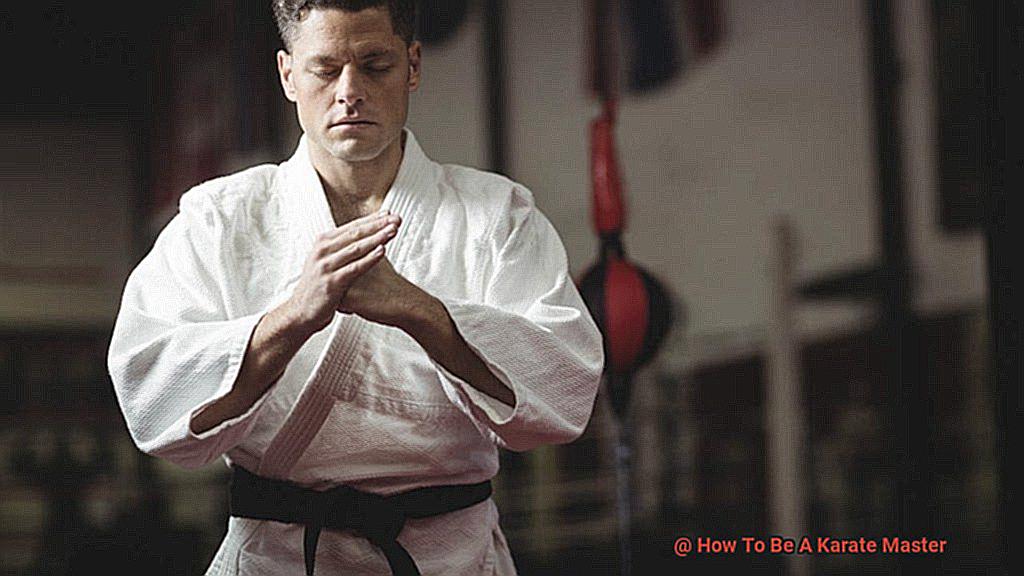
It involves developing a strong willpower and determination to succeed no matter what obstacles may arise. Mental toughness helps Karate practitioners overcome challenges that might otherwise hold them back.
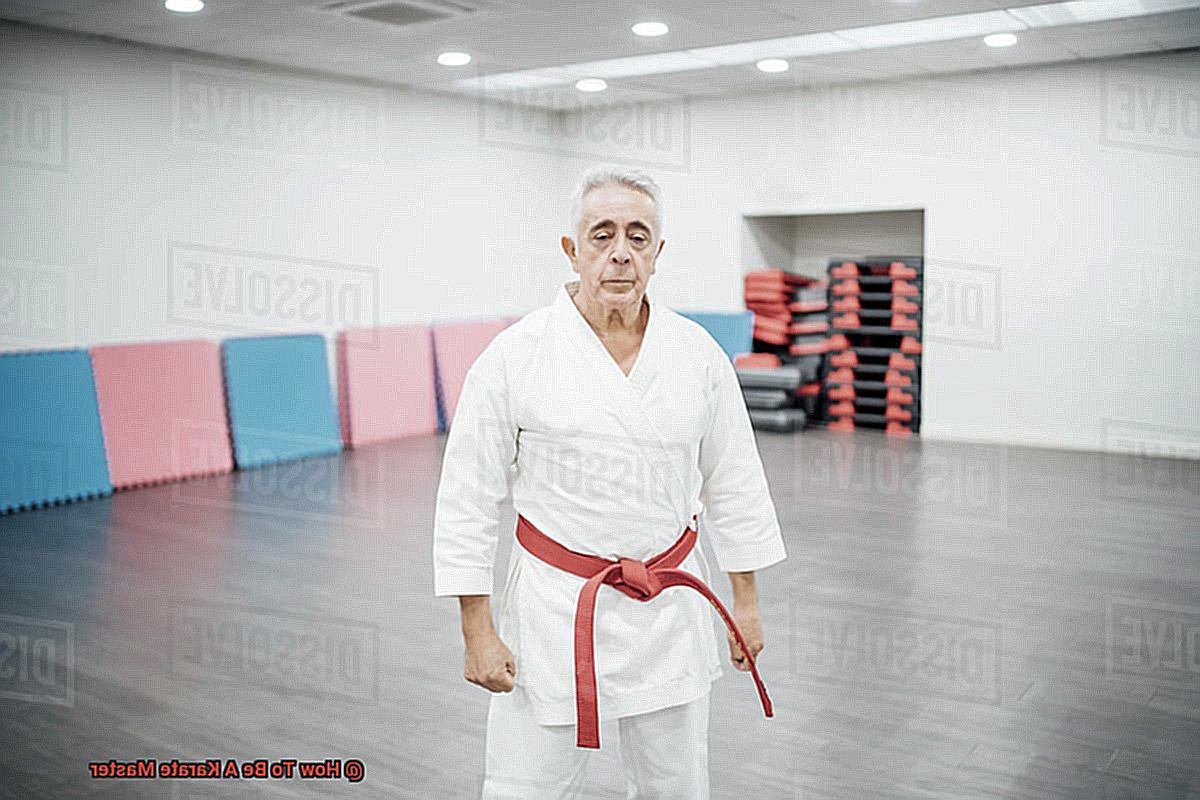
So, adopting the right mindset is key to becoming a Karate master.
By cultivating a positive attitude, humility, perseverance, and mental toughness, a Karate practitioner can develop the mental discipline and focus necessary to achieve mastery in this art form.
Dedication and Hard Work
Dedication and hard work are like the dynamic duo of karate mastery.
These two essential qualities are what separate the mediocre from the exceptional. If you’re serious about becoming a karate master, then you must cultivate and embrace these traits.
Dedication means being fully committed to the practice of karate. It’s about showing up to training sessions regularly, even on days when you don’t feel like it, and giving your best effort every single time.
Dedication also means investing time and energy into studying and understanding the principles of karate. This includes learning about its rich history, philosophy, and techniques.
Hard work is equally crucial for becoming a karate master. It involves practicing regularly, both on your own and with others, in order to improve your skills and build your endurance.
Hard work also means pushing yourself beyond your limits, both physically and mentally. It’s about striving for excellence and never settling for less than your best.
Together, dedication and hard work form the foundation of a successful karate practice. They are like the wheels of a car – without both of them, you won’t be able to move forward.
Dedication keeps you focused on your goals while hard work propels you towards them.
With dedication and hard work as your guiding principles, you can become a true karate master.
So, if you’re ready to take your karate practice to the next level, start by cultivating dedication and hard work.
Show up to every training session with enthusiasm and give it your all.
Push yourself beyond what you thought was possible, and soon you’ll find yourself achieving things that once seemed impossible.
M2zYpzUpYLE” >
Conclusion
In conclusion, becoming a karate master is a challenging but attainable goal that requires dedication, hard work, and the right mindset.
To achieve this level of mastery, you must first understand the fundamental principles of karate and seek out a qualified instructor or mentor to guide you through your training. Respect, discipline, perseverance, focus, and humility are the cornerstones of karate practice that must be incorporated into both your training and daily life.
A knowledgeable instructor can help you develop these essential qualities while providing guidance on proper technique and form. Consistent practice is vital for progress in karate.
Regular training sessions under the watchful eye of an experienced instructor will help you refine your skills and reach your full potential. Additionally, maintaining a healthy lifestyle through exercise and rest is crucial for optimal performance.
Adopting the right mindset is equally important. A positive attitude, mental toughness, humility, perseverance – these qualities are all necessary for success in karate.

